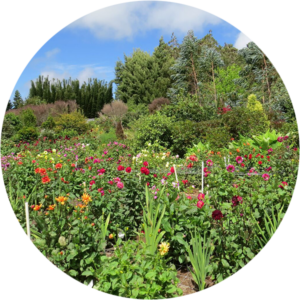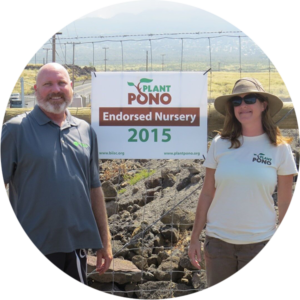Permissive Laws
Laws exist pertaining to the sale and introduction of noxious weeds, however, most of these are weeds of agriculture and are temperate species. Unfortunately, noxious weed laws do little to protect forested ecosystems and watersheds.

The majority of invasive species invading Hawaiʻi’s natural areas were intentionally introduced for forestry, horticultural or agriculture. The plants that pose the greatest threats are the ones we imported to benefit us, humans.
Voluntary Biosecurity
Plant Pono is a chance for self-regulation, a softer approach when compared with possible strict government regulation. Plant Pono officially recognizes and promotes businesses that understand invasive plants can harm our fragile biodiversity. This voluntary approach benefits businesses and the whole community. Self-imposed biosecurity is essential due to Hawaiʻi’s permissive laws regarding the importation and sale of invasive plants. Horticultural businesses are in a powerful position to self-regulate, serve their customers, save taxpayers millions of dollars and protect the ‘āina.

Businesses endorsed by plant pono are tackling the invasive species problem voluntarily. They are taking the high road by working with plants that won’t become invasive. This could result in higher business costs as non-invasive species are harder to reproduce. These business owners take the time to educate their customers as to why some plants aren’t available. And it’s a great way to show your love for Hawaiʻi: provide plants to customers that won’t displace our native species.
Flowering Plants
There are more than 250,000 species of plants in the world, over 12,000 of which have already been introduced to Hawaiʻi. The vast majority of these plants are non-invasive and not harmful; however, a small percentage of plants can escape cultivation, invade natural areas. That’s why planting pono is so important.
Hawai’i Island Endorsed Businesses
Kaua’i Endorsed Businesses



